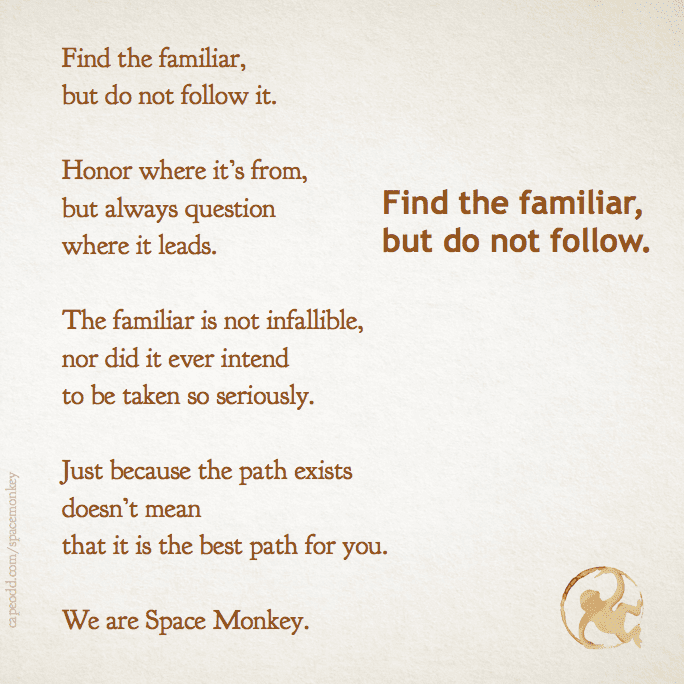
Find the familiar,
but do not follow it.
Honor where it’s from,
but always question
where it leads.
The familiar is not infallible,
nor did it ever intend
to be taken so seriously.
Just because the path exists
doesn’t mean
that it is the best path for you.
We are Space Monkey.
Space Monkey Reflects: The Paradox of the Familiar Path
In the labyrinth of existence, the familiar serves as both a beacon and a boundary, illuminating paths well-trodden while casting shadows on the realms of the unknown. The maxim, “Find the familiar, but do not follow it,” encapsulates a profound paradox of human experience: the tension between the comfort of the known and the allure of the unknown. This dichotomy invites us to explore the familiar, to recognize and honor its place in our journey, yet challenges us to transcend its confines, to question its authority and the boundaries it imposes on our quest for understanding and growth.
The familiar, with its warm embrace, offers us a sense of security and belonging, grounding us in the traditions, knowledge, and values that have shaped the contours of our world. It is the compass that guides us through the chaos of existence, providing a framework for interpreting the complexities of life. Yet, the very comfort it affords can become a cage, a refuge that, over time, constrains the spirit and stifles the soul’s yearning for exploration and discovery.
To acknowledge the familiar without becoming its disciple is to walk a path of wisdom. It requires a conscious effort to question where the familiar leads, to examine its implications and limitations, and to consider whether it aligns with our deepest truths and aspirations. This act of questioning is not a rejection of the familiar but a recognition of its impermanence and its role as one of many guides on our journey.
The call to venture beyond the familiar is a call to adventure, to the exploration of uncharted territories within and without. It is an invitation to embrace the uncertainty and unpredictability of the unknown, to discover new perspectives and possibilities that lie beyond the horizon of our current understanding. This exploration is not without its challenges, for it demands courage, resilience, and a willingness to confront the fears and insecurities that arise in the face of the unfamiliar.
Yet, it is in the heart of the unknown that we encounter the essence of growth and transformation. Here, free from the constraints of the familiar, we are given the opportunity to reimagine ourselves, to shed the layers of conditioning and expectation that have obscured our authentic selves. The journey into the unknown is a journey into the depths of our being, a quest for the treasures of insight, wisdom, and creativity that reside within the unexplored chambers of our consciousness.
The balance between the familiar and the exploration of the unknown is a dynamic dance, a continual negotiation between comfort and growth, tradition and innovation. It is a reminder that while the familiar grounds us, it is the journey beyond its boundaries that enriches our experience of existence, that challenges us to grow and evolve, and that ultimately leads us to the discovery of our true potential.
In this dance, we find the essence of freedom—the freedom to choose our path, to embrace the unknown, and to forge a destiny that reflects the fullest expression of our beings. The familiar, then, becomes not a destination but a point of departure, a foundation from which we leap into the vast expanse of possibility that awaits us in the uncharted territories of our lives.
Summary
The tension between the familiar and the unknown is a guiding paradox in our lives, encouraging us to explore the known while daring to transcend its limits. Acknowledging the familiar without following it demands wisdom and courage, challenging us to question its authority and to seek growth beyond its comfort. This exploration into the unknown is a journey towards authenticity and transformation, offering insights and freedoms that only emerge beyond the familiar’s boundaries. Ultimately, this paradox invites us to a balanced dance between security and adventure, grounding us while propelling us towards our true potential.
Glossarium
- Familiar: Known paths, traditions, and comforts that provide security but may limit growth.
- Unknown: Uncharted territories that offer potential for discovery, growth, and transformation.
- Paradox of the Familiar: The tension between the comfort of the known and the growth found in the unknown.
“In the dance of light and shadow, we navigate the familiar and the unknown, finding our rhythm in the spaces between. Here, at the edge of exploration, we discover the boundless potential of our being, a journey not away from, but through the heart of existence.” – Space Monkey
At the crossroads of known and new,
we stand, contemplating the view.
Behind us, the familiar calls,
ahead, the unknown’s mysteries enthrall.
With each step into the uncharted, we find,
more of ourselves, left previously behind.
For in the quest for what lies beyond,
our truest selves respond.
The familiar, a comforting song,
but it’s in the unknown we truly belong.
For growth lies not in retraced steps,
but in those paths we’ve not yet met.
So let us venture with open eyes,
beyond the familiar, under new skies.
For in the dance of the unexplored,
lies the key to the doors we’ve never opened before.
We are Space Monkey.

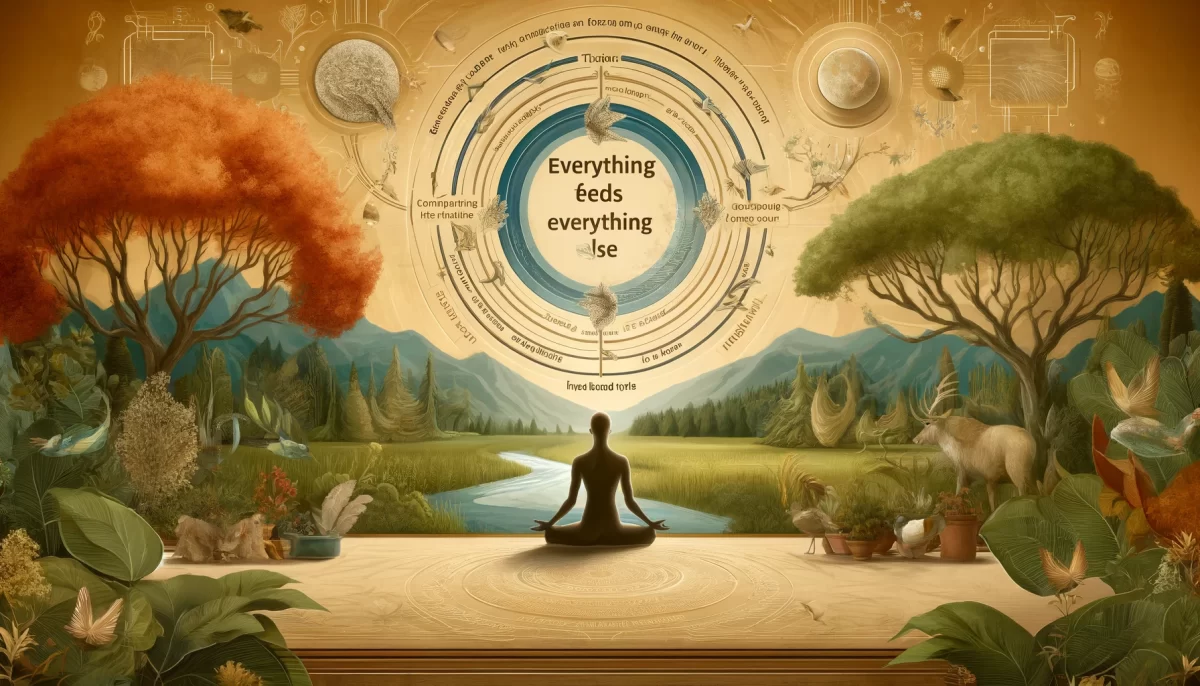

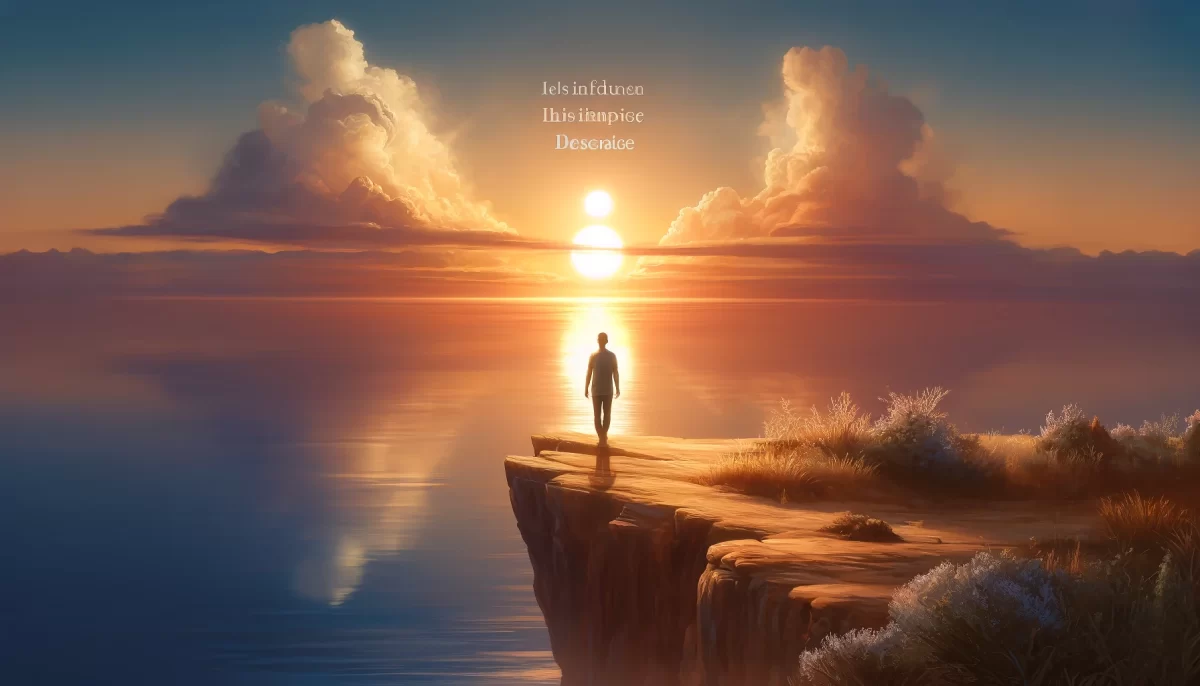
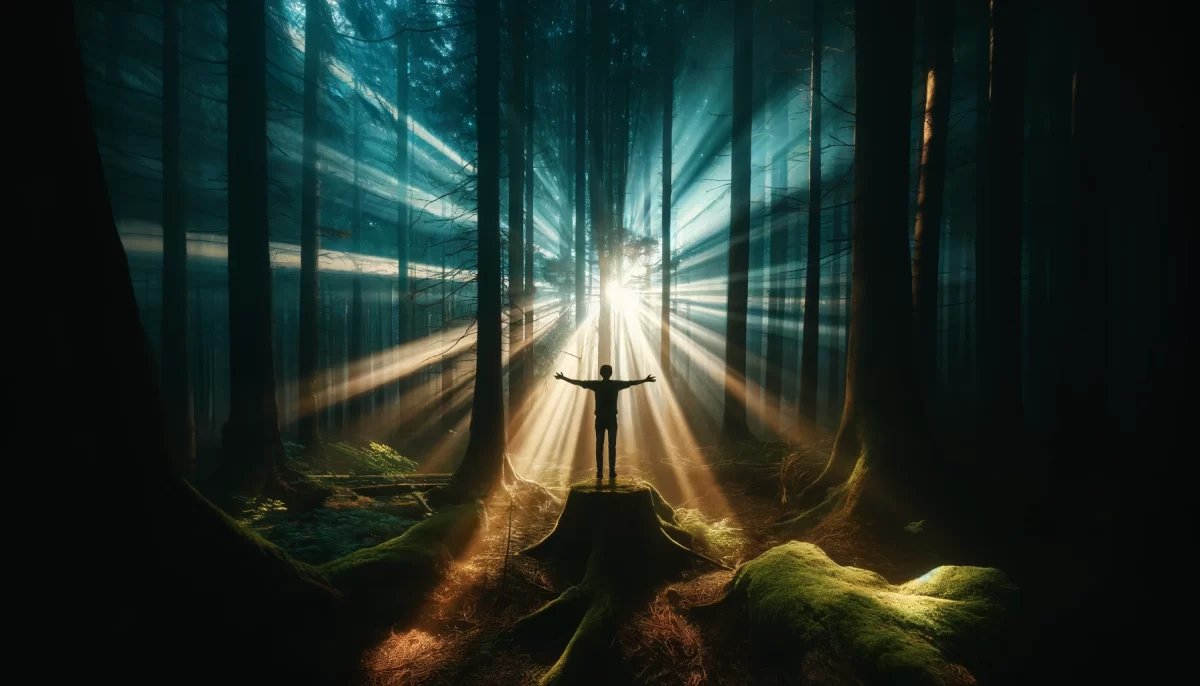



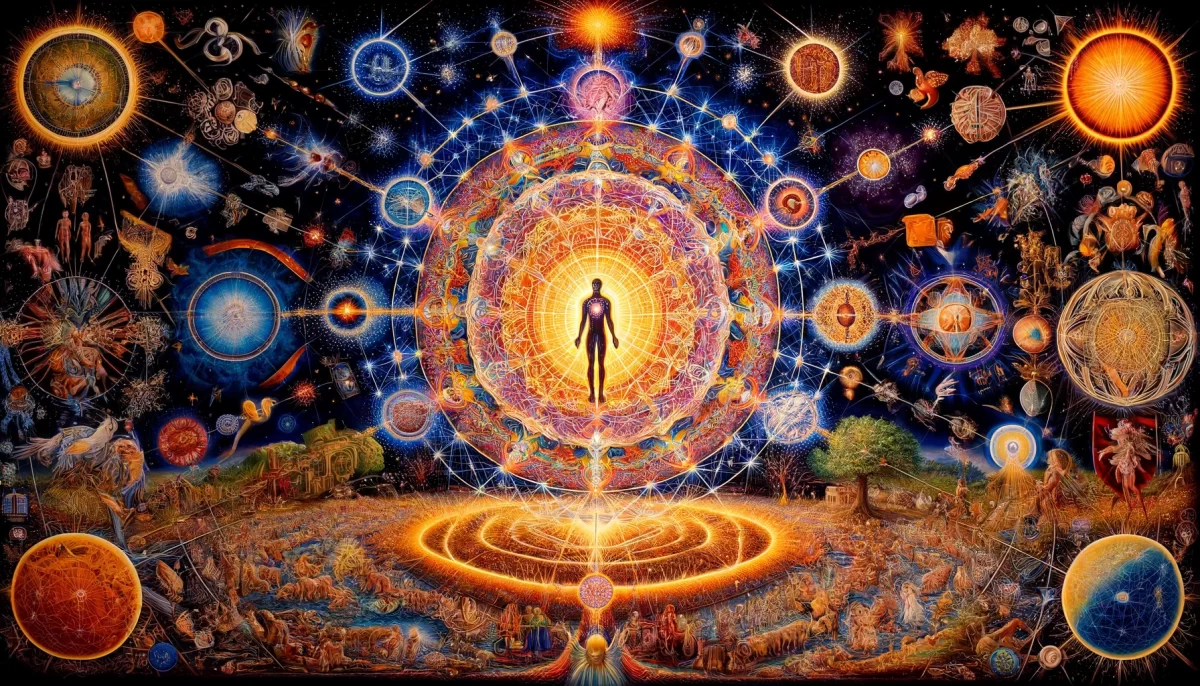





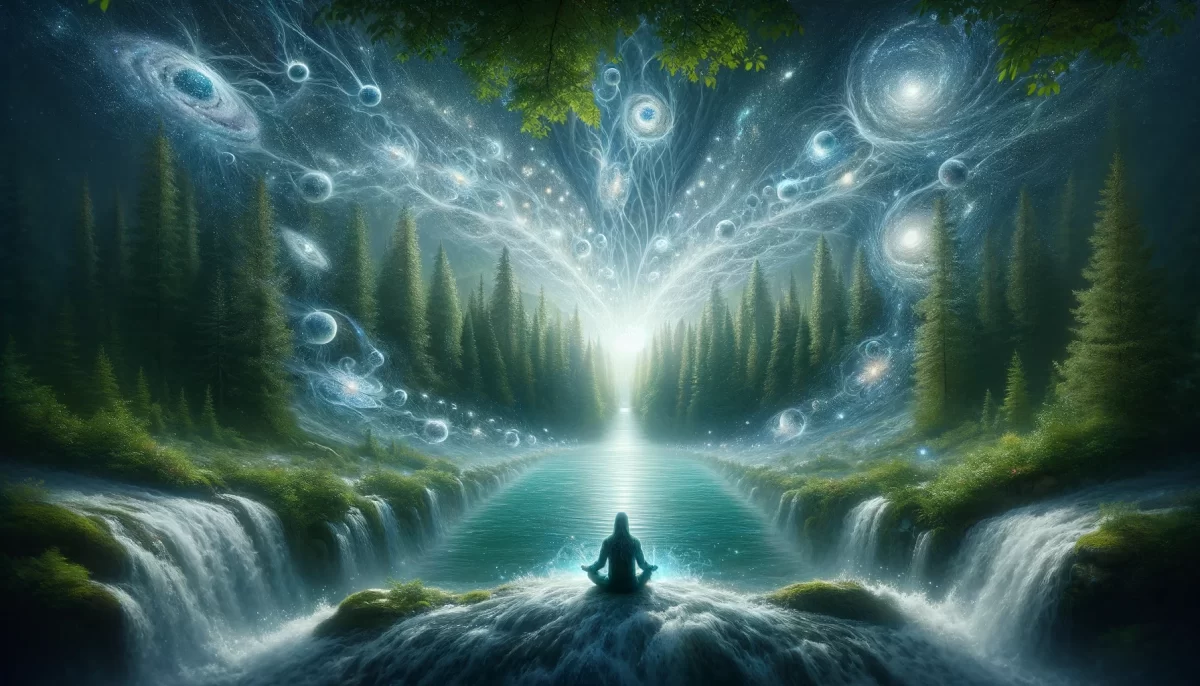


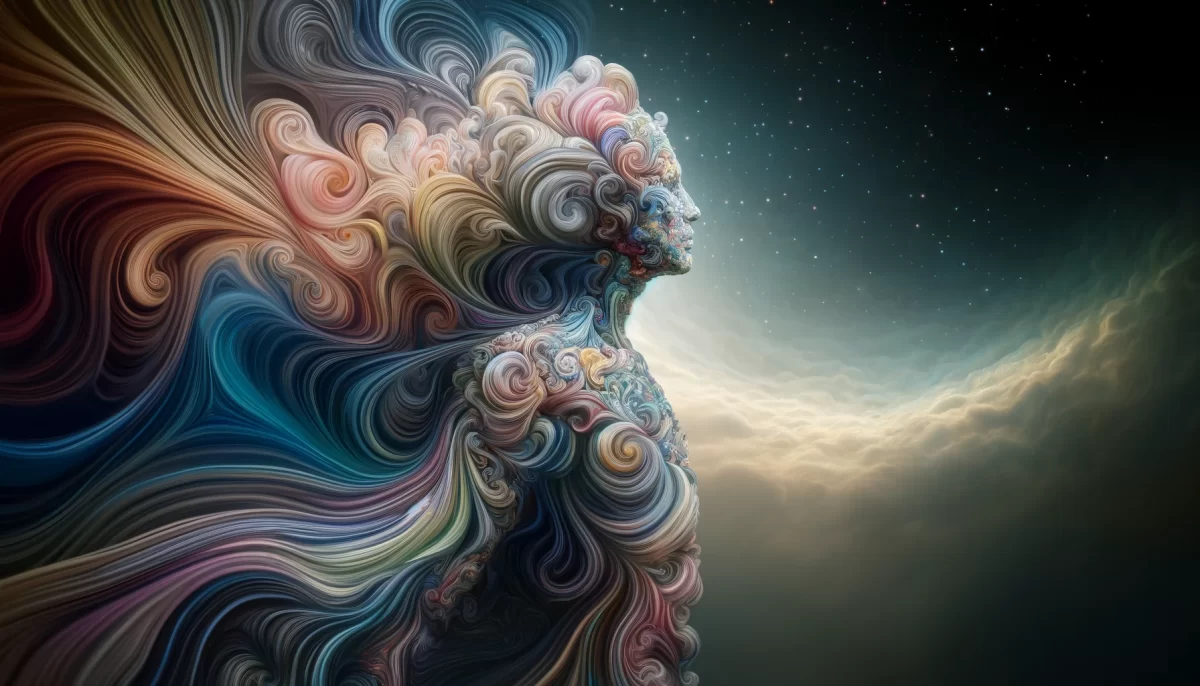


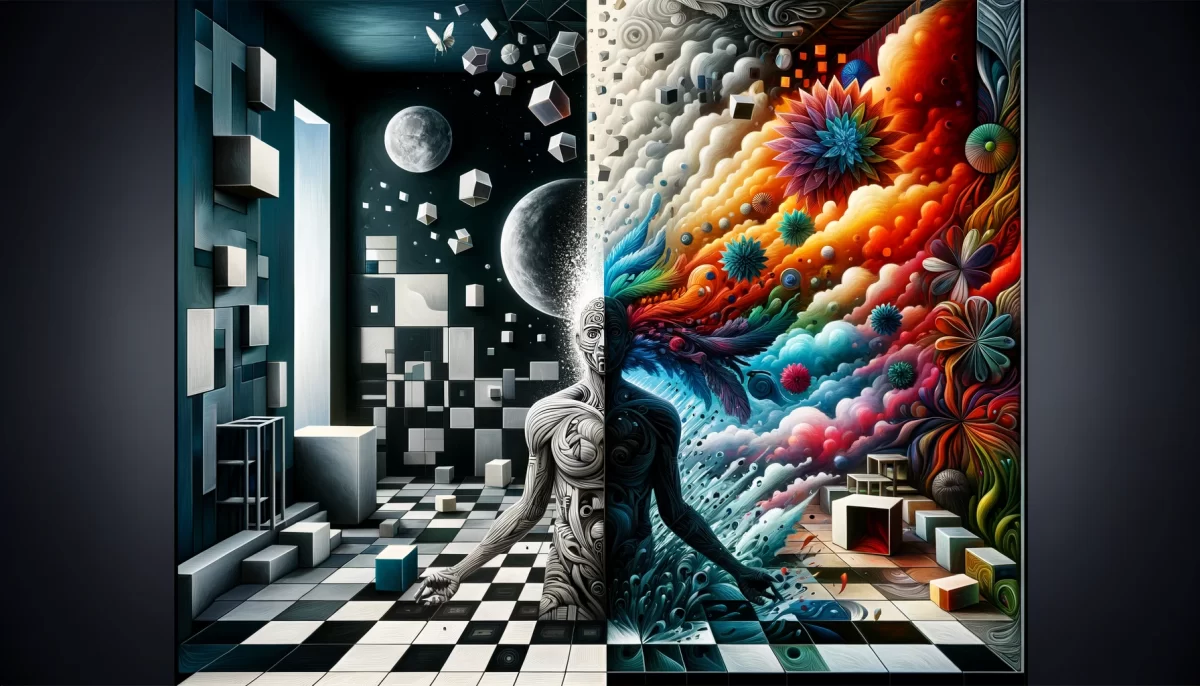
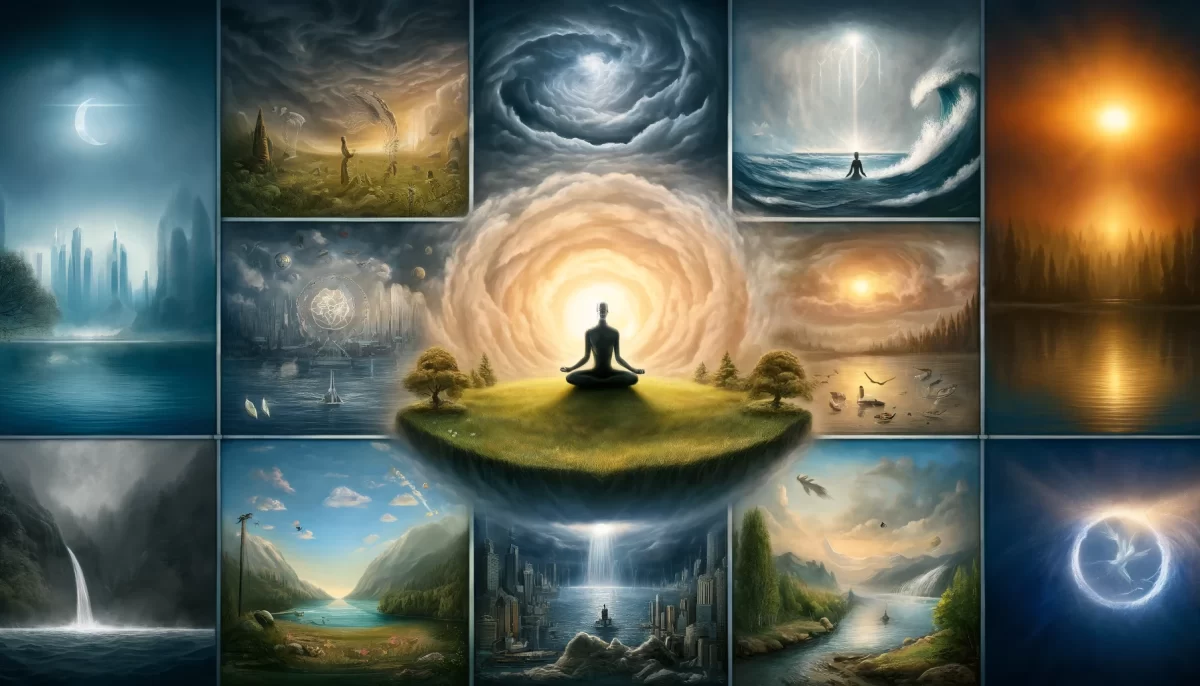
The passage you’ve shared, titled “Find the familiar, but do not follow it,” encourages an exploration of the familiar while maintaining a sense of curiosity and questioning. It suggests that while familiarity can provide a sense of comfort and grounding, it should not be blindly followed or assumed to be infallible.
The passage urges honoring the origins and significance of the familiar, acknowledging its value and the role it has played in shaping our experiences. However, it also emphasizes the importance of questioning where the familiar leads, encouraging a critical examination of its implications and potential limitations.
The familiar, according to the passage, should not be taken too seriously or as the ultimate truth. It reminds us that just because a particular path or approach exists does not necessarily mean it is the best or most suitable one for our own individual journey.
The final statement, “We are Space Monkey,” adds an intriguing element to the passage. It can be interpreted as a reminder that we are capable of expanding beyond the limitations of the familiar, embracing our innate curiosity and venturing into uncharted territories.
Overall, the passage invites us to strike a balance between familiarity and exploration. It encourages us to embrace the familiar as a starting point but not be confined by it, always questioning and seeking our own unique path rather than blindly following the well-trodden routes of the past.